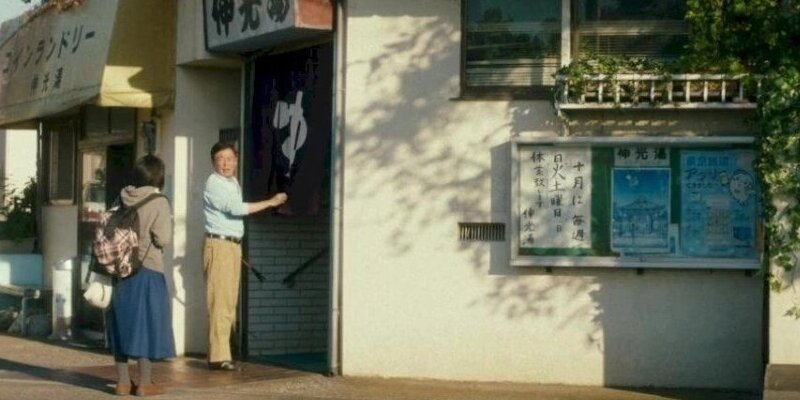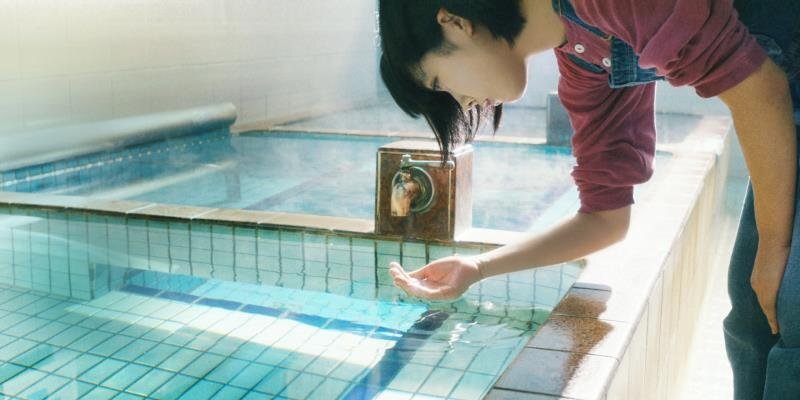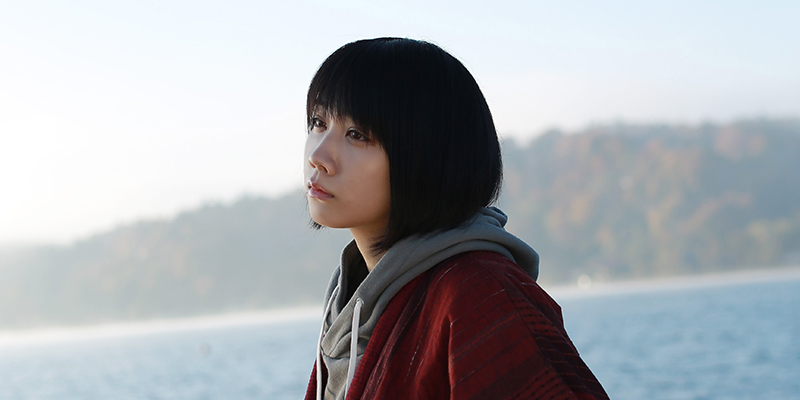Mio on the Shore Review – Subtly Sublime
Mio on the Shore is the most recent Japanese movie I have discovered in the comfort of my own living room. Much like my viewing experience of Call Me Chihiro it has left me just as touched by what it quietly has to remind its audience about on the topic of appreciating the lows and highs of life itself.
As a slow burner with a runtime that clocks in at 96 minutes it does not ask for much but to appreciate its spectacular cinematography, captivating female lead and depiction of when life treats you cruelly find the opportunity to recognise the beauty that surrounds you still.
This is a spoiler-free write up.
Story and details

Mio on the Shore follows the titular Mio, a twenty something year old woman who is going through a tumultuous time in her life. Everything about her life is uncertain and ever-changing across such a short amount of time as we join her during her attempt at fitting into a new town. Her parents have long since passed away and her grandmother who had been raising her in their stead has now been hospitalised. Mio relocates to Tokyo, leaving behind her hometown out of a necessity to find new means to provide for herself.
She attempts to settle into this new lifestyle, working in a grocery store and meeting the more open and social citizens of her new home. But as reversed as she is and with life always finding a way to unravel whenever we finally get a grasp of it, Mio continues to struggle as the bathhouse she gets better accustomed to in working in is about to shut down due to demolition of the surrounding area. Mio must accept and adapt once more.
As my very first movie from director Ryutaro Nakagawa who is most certainly a promising auteur I will cover in more depth some time in the future, Mio on the Shore is not the type of film I usually enjoy, let alone would willingly try. A slow burner and a slice of life storyline usually spells disaster for me, but Ryutaro’s delicately consoling approach to the very topics it explores leaves a shockingly pleasant send off for Mio. It ends on a very hopeful message that makes me immediately appreciative of the product in question. So, let’s discuss it.
Deeper meaning

Mio on the Shore manages to be both overwhelming yet calming at the same time. It tackles difficult themes with the major one being the acceptance of change. As a drama centred around its main character attempting to find stability in settling down time and time again, the change of everything around and about her is what pushes the storyline along – until she finally comes to realise that appreciating the uncertainty of life itself is the bitter to the sweet of living life. You can’t have one without the other.
This extends outwardly in what the characters around her teach her along the way to this realisation. There is always something at odds with one another. Mio herself is attempting to move forward in life, the aspiring filmmaker Ginji always lives in the past by capturing the present to look back on and the bathhouse owner Kyosuke is seemingly held back by something. These are only a few examples of how character specific this element is that reappears throughout the film and that does not even cover other aspects such as how people, businesses and relationships evolve over time too. But if Mio can keep on going then we can too.
Why you should watch it

Matsumoto Honoka is mesmerising as Mio, a kind of character who I find extremely grounded and human. I would go as far as to say that Mio, as a character, is rare to see. She has very few lines to reinforce how reserved, shy and uncertain she is during her journey in finding her calling. The cinematography picks up on visually portraying her inner turmoil with the gorgeous, lingering shots it takes whenever Mio is quietly in the frame. It’s all incredibly stunning which further perpetuates the importance of appreciating the beauty of the world around us despite the unpredictability of the progression of life itself.
Furthermore, the many colourful and unique characters Mio meets also adds to this point. The dinner scene which is extremely uncomfortable for Mio herself since the company she has are the complete opposite to her highlights how difficult communicating with others is at the best of times. At yet, it’s also a reminder that we are all struggling with something. While this serves Mio as a memory that she would rather forget about in the future, her run-in with a Ethiopian restaurant is a welcoming and enriching experience in comparison.
Again, this one example showcases the two extremes of what life will undoubtably throw at you at some point. But in each instance, we move on. Mio on the Shore is a timid and delicate exploration of how times are changing and why we must adapt to stay afloat during it all. It’s worth it despite the pain and tribulations that come with evolution.
You can find the movie with English subtitles over at Amazon Prime.
- Sigh of the Abyss: Shadow Bonds – Prologue Review - October 7, 2023
- Is She The Wolf? is wickedly addicting TV - October 6, 2023
- The steady consumption of Slow Damage - October 5, 2023





